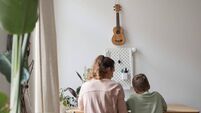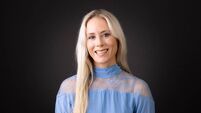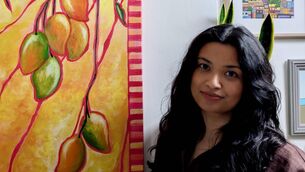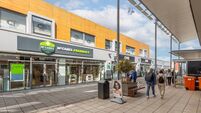My Career: Cork medical tattoo specialist says ‘each day is different’

Aislinn has worked in the healthcare sector for close to three decades.
Name: Aislinn Horgan
Age: 51
Lives: Timoleague
Job title: Medical Tattoo Specialist
Salary bracket: €45,000-60,000
Education background: I went to school in the Ursuline Convent, Blackrock. I trained in General Nursing in the Bon Secours Hospital, Cork, where I qualified at the top of my class.
Trying to figure out which route to take with my nursing background, I studied Health and Safety in UCD and also Project Management, but they didn’t ignite any passion in me so I continued to look for my plan B.
Once I finally decided to take the plunge and pivot completely into the world of medical tattooing, I qualified in eyebrow micropigmentation, areola and 3D nipple tattooing, MCA scar revision and stretchmark and scar revision using medical grade serum.
Hobbies: I have always had an interest in interiors and gardening, but as I run multiple clinics as well as having three active children, I find it difficult to find the time for my own hobbies. On my longer journeys to and from my Galway and Dublin clinics, I like to listen to audiobooks or radio documentaries.
Describe your job in five words: Restoring confidence through artistic healing.
Describe yourself in five words: Resilient, compassionate, determined, empathetic, professional.
Personality needed for this kind of work? It is important to have empathy, understanding and compassion for clients who have experienced trauma or illness, and to understand the journey they went through physically, emotionally and psychologically. Patience and the ability to work carefully and attentively, especially with sensitive and compromised skin and emotional clients that still carry a lot of conscious and subconscious trauma.
Attention to detail and precision is critical in creating realistic and natural-looking results, working with the client to match colour, shape and detail to a remaining areola, or to replacing two areolas that are as close as possible or completely different to what was lost.
It is important to have composure, a calm, reassuring demeanour to put clients at ease during an intimate and emotional process that quite often brings a lot of buried emotion and trauma to the surface.
Plus, creativity and artistic skill, and an eye for colour and shape to create natural, life-like results.
How long are you doing this job? I have been nursing and in the healthcare sector for 29 years and started training in medical tattooing in 2021. As with a lot of industries, I believe continuous education is incredibly important as treatments, machines, pigments and techniques are always evolving.
How did you get this job? Medical tattooing, or ‘medical micropigmentation’ uses traditional tattoo needles, machines, and pigments to enhance the appearance of surgical reconstructions or scars. As a nurse and medical tattoo artist, I am trained to work on compromised skin, such as scars and reconstructions. Nipple-areolar tattooing after a mastectomy is more than cosmetic - it’s a blend of medical expertise and artistic mastery.
I work to create realistic, 3D nipples and areolas, restoring not only the look of the breasts but also the patient’s sense of self.
This final step in reconstruction offers emotional healing and closure after the challenges of diagnosis, treatment, and recovery.
My career path has been anything but straightforward, but looking back, each step made sense and has led me to where I am today.
After leaving school, I trained as a nurse at Bon Secours Hospital in Cork. Here I gained a deep understanding of healthcare and the emotional and physical toll that illness can have on people. This foundation of empathy and care has stayed with me throughout my career.
Qualifying at the top of my class, I worked in orthopeadics and then oncology for some time, but I got itchy feet to try something completely different. While a lot of my nursing colleagues travelled to Australia, I took a bit of a detour and worked with Aer Lingus for six months as cabin crew. It was a completely different experience — fast-paced, customer-focused, and very different from the medical world. While it wasn’t where I ultimately wanted to be, it taught me valuable communication and interpersonal skills that I’ve carried into every role since.
From there, I worked as a nurse in a number of Dublin hospitals, but after some time I transitioned into the pharmaceutical industry, where I stayed for many years. I worked as a Key Account Manager specialising in disease areas such as allergy, cardiology, anaesthesia, and oncology. My background in nursing made this a natural fit - during this time I worked closely with doctors and nurses to improve efficiencies in patient care, identified the difficulty in accessing some services and the gaps in care that weren’t being addressed.
This insight planted the first seeds of what would eventually become my business.
Even while working in pharma, I always had a feeling that I needed a ‘Plan B’. I had thought about areola tattooing on and off for years, but I never had the confidence to take the plunge. It wasn’t until the first covid lockdown that I had the time and space to seriously reflect on my future. The idea of helping people after their cancer treatment, at a point when most support services have ended, really stuck with me.
I left my comfortable career in pharma and I set about training in eyebrow micropigmentation, the most advanced form of semi-permanent eyebrow restoration available. What mattered the most to me was receiving the highest level of training available, so I set about being trained by some of the top masters in the world of permanent make-up. I have trained with Monica Ivani in Dublin, Alex Mechinici in the UK, Oksana Martynenko in Estonia, Katy Lupsinova in Bratislava and Hoi Kwan in Canada.
I set about specialising in restoring eyebrows lost due to chemotherapy and alopecia, not excluding those wanting to improve the appearance of sparse brows for aesthetic reasons.
Before considering specialising in areola tattooing, it was important for me to learn as much as I could about skin, tattoo machines, pigments and inks as I knew working on compromised tissue needed someone experienced and knowledgeable. My nursing gave me a unique perspective and credibility in the medical tattooing space. I understood not only the physical healing process but also the emotional recovery that clients needed.
I spent many years perfecting my skills and knowledge by qualifying in hyper-realistic areola and 3D nipple reconstruction with three different areola training academies in the UK, and studied tattooing scars and hyperrealism with Areola Restorative Tattoo School in Canada.
Areola tattooing also has a place following breast augmentation surgery and gender reassignment top surgery.
Along with specialising in restorative tattoos, I am trained in treating scars and stretchmarks through inkless revision. This is an advanced procedure using medical grade serum specifically designed to permanently improve the appearance of stretch marks and scars by encouraging the body’s natural ability to heal, encouraging cell turnover, reconstructing fibroblast cells and rejuvenating collagen and elastin at the targeted areas, permanently improving the look, colour and texture of the skin.
Today, I feel incredibly fortunate to do what I do. Every day, I’m reminded of why I chose this path when I see the confidence and relief on my clients’ faces. Knowing I’m helping people feel whole again after one of the hardest experiences of their lives is what drives me. My journey has shown me career paths aren’t always linear - sometimes you have to face challenges and make big changes to find where you truly belong.
Describe a day at work: Each day of my working week is different. If I have clinics closer to home I will drop my children to school and go to the clinic to set up for the day. I organise charts, prepare after-care kits and sanitise the clinic before setting up my trolley, machines and pigments for my first booking.
I can have bookings for areola, brows, stretchmarks and consultations all in the same day, so it is really important to be organised and set up in advance for each different booking.
If a query has come in via email or phone, I will always ring the person back to schedule a time to chat through whatever information they are requesting. It is important for me to get as much information as I can in order to advise the client of the best course of action for them.
This is hugely important for the client as it is their first connection with me, it’s important to feel comfortable and reassured as for many it is a huge step in their emotional and psychological healing.
How many hours do you work a week? Each week is different, but approximately 27-30 hours per week.
Is your industry male or female-dominated? Currently, there are very few medical tattooists in Ireland and all are female, as far as I am aware.
Is your job stressful? How? Rate it on a scale of 1-10: I don’t find my job stressful but it can be very draining. As I am an empathetic person, I tend to take on the emotions of my clients and as some of their journeys have been incredibly difficult, it is hard not to be affected by this. I am getting better at my own self-care, being a support for my clients and looking after myself as well.
Do you work with others or on your own? I work on my own, but I do work out of busy medical clinics so I have support and people to chat to when I need it.
When do you plan to retire or give up working? Gosh, I haven’t even thought that far yet. My business is still in its infancy so I hope to continue growing and developing, both personally and professionally, for many years to come
Best bits: Seeing the joy, tears and emotion when someone sees their transformation in the mirror. Being a part of one of the most intimate and heart-warming moments in someone’s life following a traumatic and often very long journey.
Worst bits: I don’t see them as the worst bits but they are the difficult bits, where I listen to the stories, the fear, the emotion, the sense of loss of self of those that were on that cancer journey. Also, when I hear stories from my clients that come for scar revision from self- harm scars to traumatic accidents or burns, I am always amazed at people’s resilience.
Advice to those who want your job? Please spend time researching the best training schools and trainers and spend time learning and developing before ever working on and actual person.
Email byaislinnstudio@gmail.com or see www.byaislinn.ie.







 App?
App?


